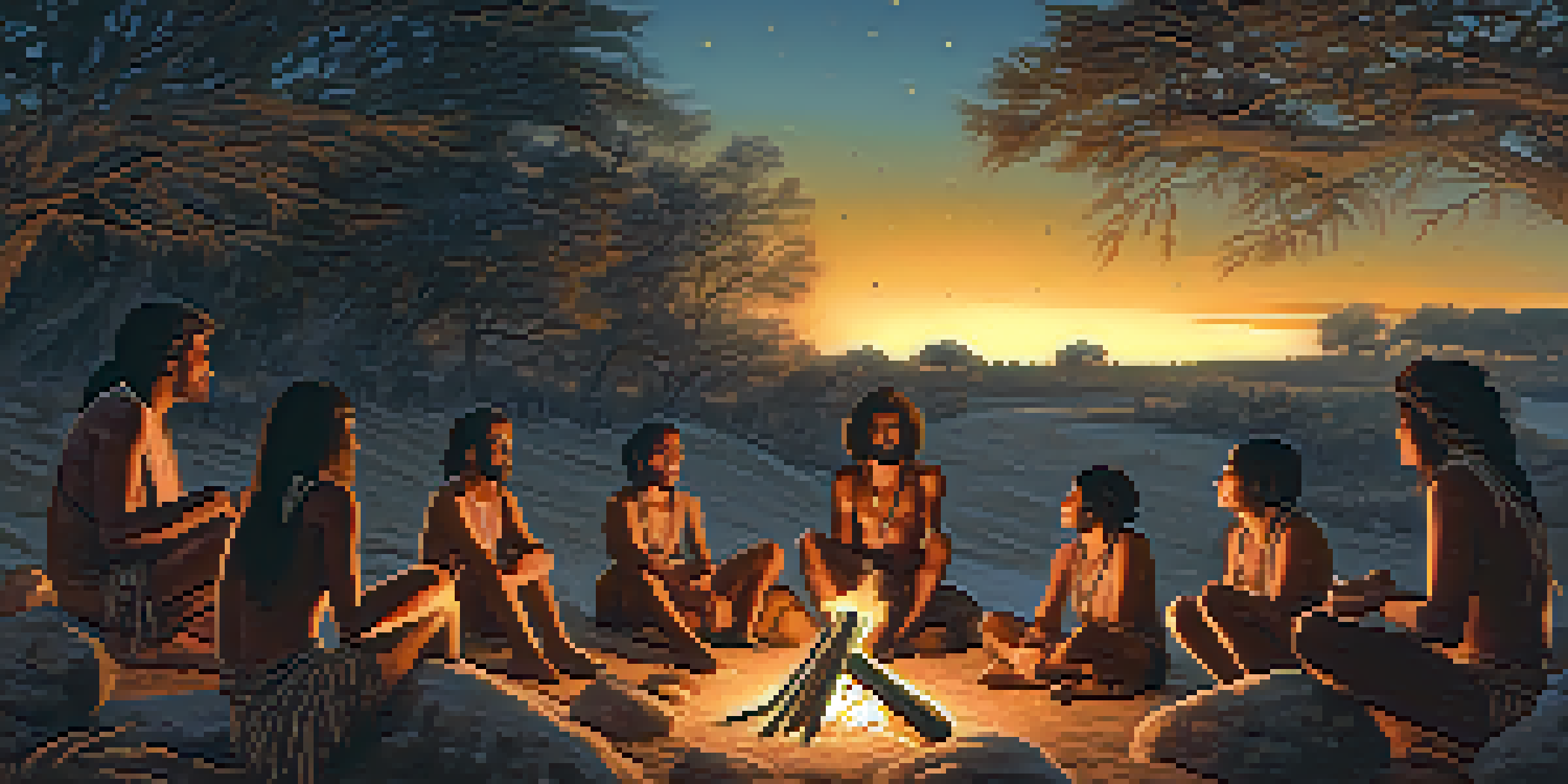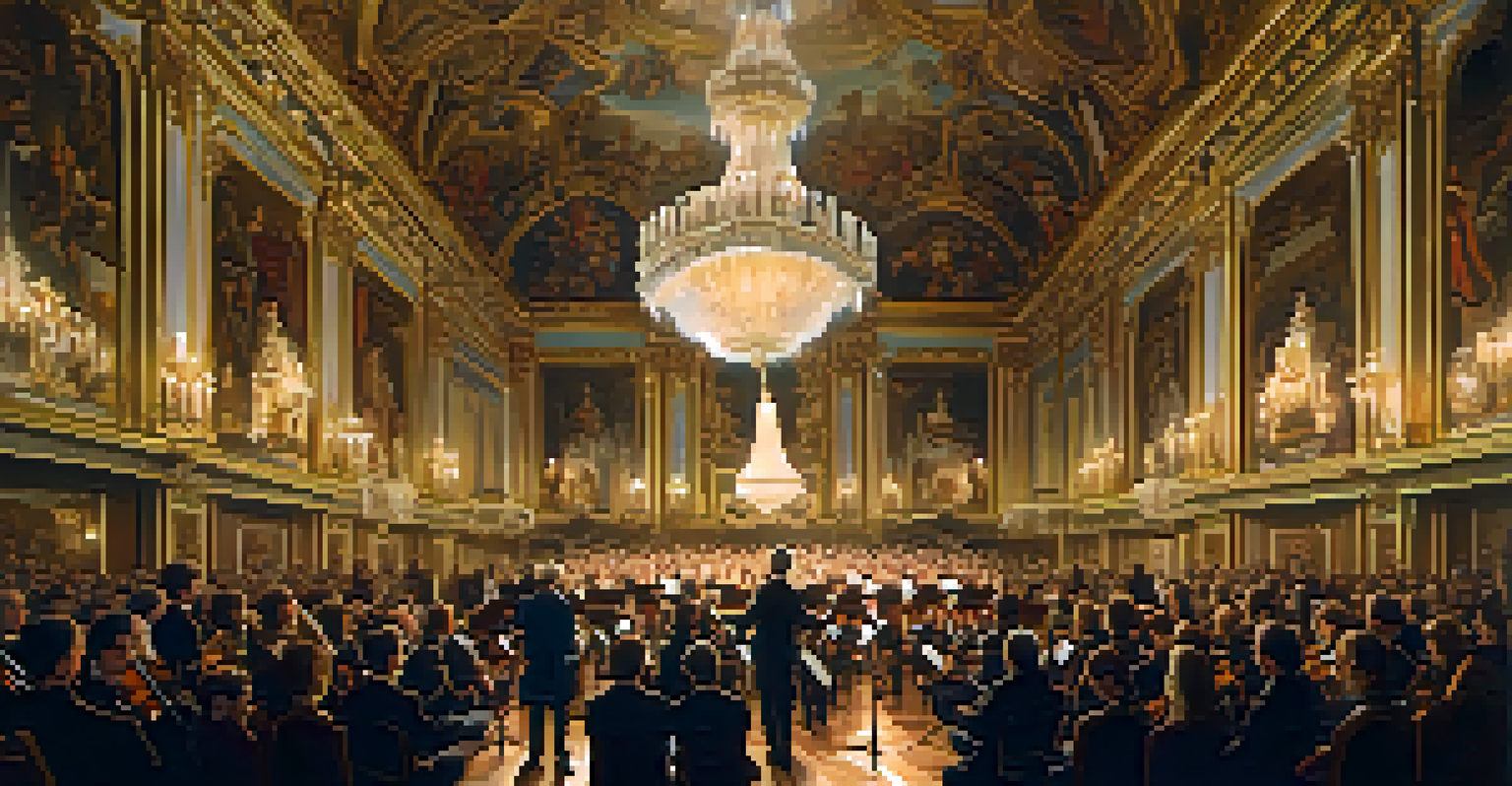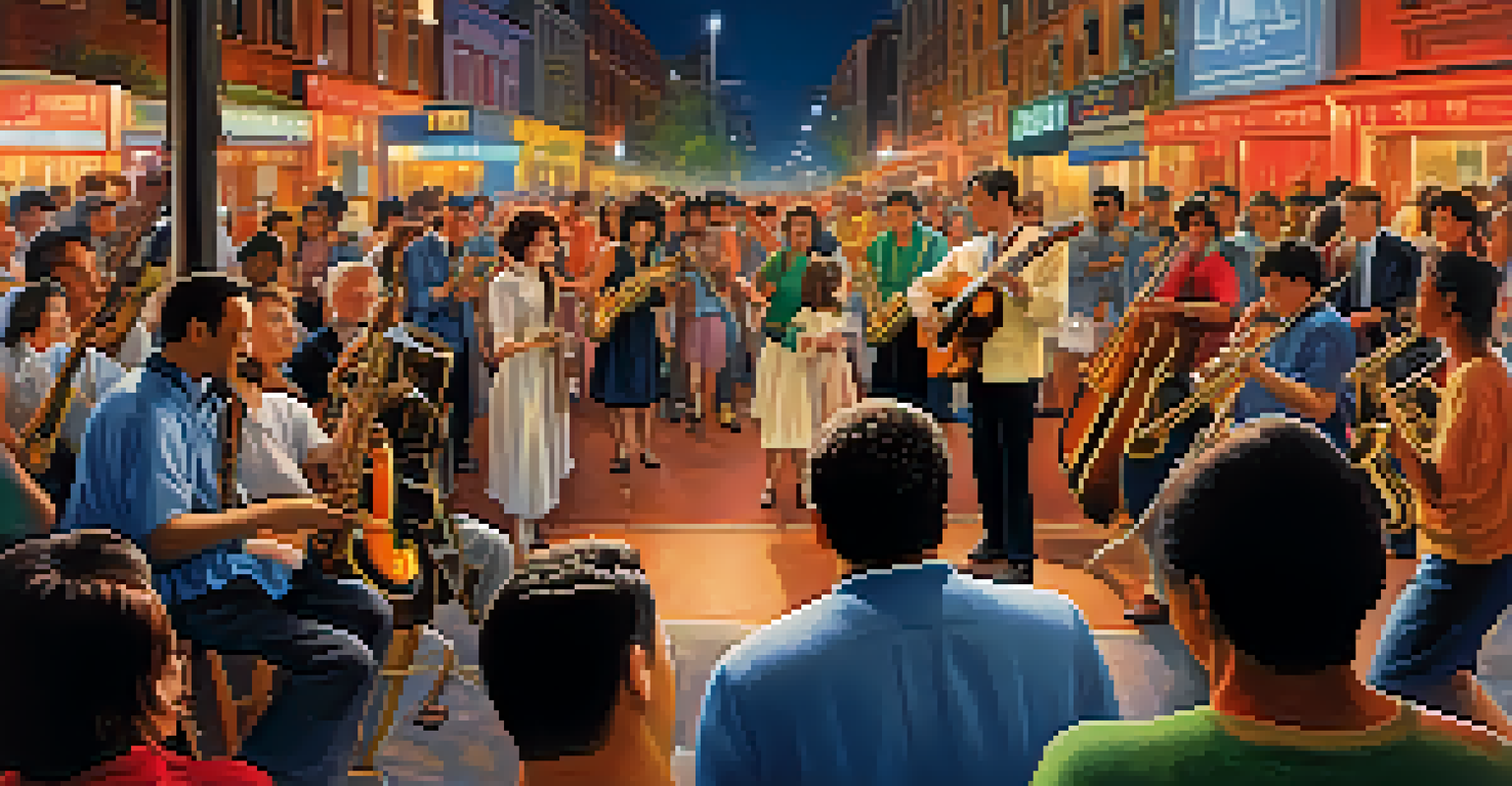The Cultural Impact of Music Through the Ages Explained

The Origins of Music and Its Role in Early Societies
Music is as ancient as humanity itself, with roots tracing back to prehistoric times. Early humans used music as a form of communication and expression, often in rituals and celebrations. Instruments like flutes made from bones and simple drums created a communal experience that brought people together.
Music can change the world because it can change people.
As societies evolved, music became a crucial part of cultural identity. It wasn't just entertainment; it served to tell stories, pass down traditions, and even aid in hunting or farming. For example, Indigenous communities often used songs to convey knowledge about the land and seasons.
This foundational role of music in early cultures laid the groundwork for the diverse genres we enjoy today. Whether it was chants, dances, or storytelling through song, music fostered a sense of belonging and shared experience among early humans.
The Impact of Music in Ancient Civilizations
As civilizations advanced, so did the complexity of music. In Ancient Greece, for instance, music was deeply intertwined with philosophy and education. Great thinkers like Plato viewed music as an essential element of a well-rounded education, believing it could shape character and morality.

Similarly, in Ancient Rome, music was prevalent in various aspects of life from entertainment in theaters to ceremonies in temples. The Romans introduced new instruments and styles, influencing the music that would come in the Middle Ages.
This period marked a transition where music began to be documented, leading to the creation of musical notation. The ability to write music down not only preserved sounds for future generations but also allowed for the sharing of ideas across cultures.
The Evolution of Music Through the Middle Ages
During the Middle Ages, music began to flourish in both sacred and secular forms. Gregorian chants dominated the religious landscape, providing a meditative experience for worshippers. These chants were characterized by their monophonic texture and Latin lyrics, which connected people to their faith.
Without music, life would be a mistake.
However, this era also saw the rise of secular music, with the emergence of troubadours and minstrels who entertained the masses. Their songs often revolved around themes of love, chivalry, and adventure, reflecting the societal values of the time.
The blending of sacred and secular music laid the groundwork for the richness of later musical forms. This period highlighted how music could serve both spiritual needs and societal commentary, marking a significant cultural shift.
Renaissance Music and the Birth of Individual Expression
The Renaissance brought with it a renewed interest in the arts, and music was no exception. This era emphasized individual expression and creativity, leading to the development of polyphony, where multiple independent melodies were sung simultaneously. Composers like Josquin des Prez revolutionized music with intricate harmonies that conveyed a wide range of emotions.
In addition to sacred music, the rise of instrumental music began to take center stage. Instruments like the lute and viol became popular, allowing for new forms of expression that weren't solely reliant on vocal performance.
This period marked a significant cultural achievement, showcasing how music could reflect the beauty and complexity of human experience. The innovations of the Renaissance set the stage for future genres and styles in the centuries to come.
The Baroque Era: Music as a Reflection of Power
The Baroque era was characterized by grandeur and drama, with music often reflecting the power and wealth of its patrons. Composers like Bach and Handel created elaborate works that showcased technical skill and emotional depth. Music became a tool for both political and religious expression, illustrating the values and aspirations of the time.
Opera emerged during this period, combining music, theater, and storytelling in a way that captivated audiences. This genre not only entertained but also provided commentary on societal issues, making music a vehicle for change.
The opulence of Baroque music exemplified how art could mirror societal structures. As music continued to evolve, it became increasingly tied to individual experiences and emotions, paving the way for future movements.
The Rise of Classical Music and the Age of Enlightenment
The Classical period brought with it a shift towards clarity and balance in music. Composers like Mozart and Haydn focused on form and structure, creating pieces that emphasized elegance and accessibility. This period coincided with the Age of Enlightenment, where reason and individualism were celebrated, reflecting a cultural shift towards democracy and personal expression.
Music became more accessible to the middle class, with public concerts emerging as a popular form of entertainment. This democratization of music allowed for a wider appreciation and participation in the arts, fostering a sense of community among listeners.
The Classical era marked a turning point in music, highlighting the importance of both composer and audience. It set the stage for the Romantic period, where emotions and individual experiences took center stage in musical expression.
The Cultural Revolution: Music in the 20th Century
The 20th century was a time of immense cultural change, and music played a pivotal role in shaping societal movements. Genres like jazz, rock, and hip-hop emerged, serving as expressions of rebellion, freedom, and identity. Artists used their platforms to address social issues, from civil rights to war, making music a powerful tool for advocacy.
The advent of technology transformed how music was produced and consumed. With the rise of radio, vinyl, and later digital formats, music became a global phenomenon, transcending borders and cultures. This accessibility fostered cross-cultural collaborations that enriched the world of music.

As music evolved, it mirrored the complexities and challenges of modern society. The 20th century showcased how music could unite people, provoke thought, and inspire change, solidifying its place as an integral part of cultural identity.